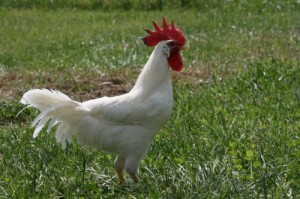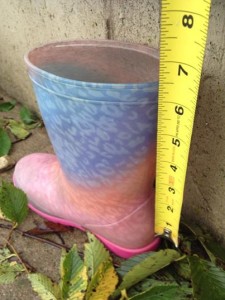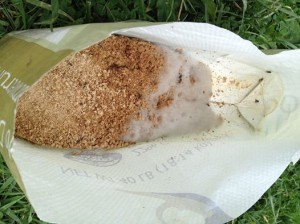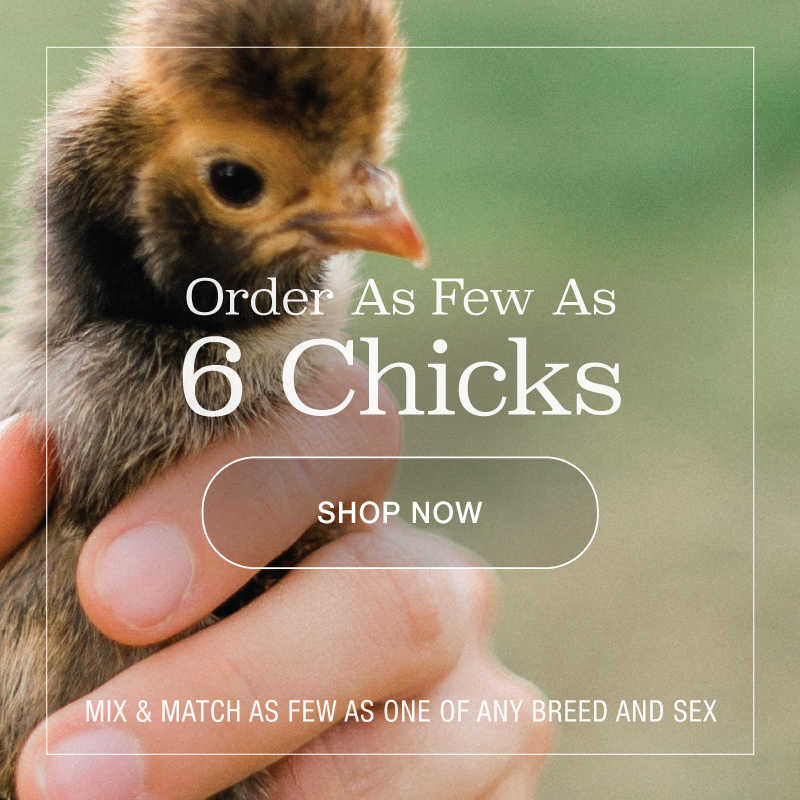I didn’t know what was happening until I saw the mold in the feed bag – by then it was too late. Unfortunately what I had to endure this week was nothing we had encountered on our little patch of heaven yet. As I looked down at the snow covered feed, I couldn’t help but think, again, “I should have known better”. I have said that many times since we moved onto the farm and I guess no matter how much you know or how much you research, things can still happen. This time they did.
Walking through the dew drenched grass I often envision a party type of atmosphere in the coop as I hear Mr. Doodle, our male Pearl White Leghorn sounding the morning bell early and loud. His crowing in the morning has become a welcomed sound on the farm, one I didn’t realize how much I would appreciate. His bold proclamations are gentle reminders that as I work on things around the property, he has everything under control in the coop.
When I open the coop door in the cool mornings my flocks of chickens are typically eagerly greeting me. “Oh he’s coming in, he’s coming in Martha!” “Glattice, Glattice here he is honey, come on, I think we need be first in line” I imagine the various girls yelling to each other. I humor myself and greet them with a slow and deep voiced “Hellllloooo ladies…” They have their clicks and groups they stay in and unfortunately there is the one chicken that everyone seems to like to pick on. Call me a softy, but I always pour that poor chicken a separate little pile of food so she can eat in peace without getting pecked on. I’m assuming she made a smart remark about one of the other girls’ patterns or made a comment about their naked legs as she stood full feathered and covered. Regardless what it was the others no longer take to her well.
That’s the normal thoughts and sights and sounds to my morning feeds. This particular morning when I opened the barn doors, however, there was no crowing heard from Mr. Doodle. My normally anxious girls were rather in a slumber, some still high on the roost while others were walking around slowly, in a bit of a stupor. As I surveyed the other pen inside, my group of male chickens appeared to have been injected with a balloon full of air. They were puffed up like pumpkins and one, in the corner, lay dead. I went to fill the feeders and the waterers but to my surprise, all were still half full. This was like some weird scene from an Alfred Hitchcock movie (I hated those movies). They all stood still staring at me as if saying with their eyes, “Do not look behind the nest boxes, do not go there, walk slowly…”. Was it a snake I wondered…oh, please please please do not be a snake I thought. Unfortunately this would continue for the next several days.
Trips to the chicken coop were very frequent over those next days. On day two, after losing five chickens, it came to a head. It was an early afternoon and I went to check on how they were doing only to find, Mr. Doodle, our prized Pearl White Leghorn male that was the voice of our new farm, laying down, with little motion and sad looking eyes. I couldn’t believe it. The chickens that had perished so far were younger chickens and I thought perhaps they were just weaker in nature. Mr. Doodle, however was the Mr. T of the farm. He controlled the coop and everything in it. He was the epitome of handsome chickens but now he was failing. I went and tended to the turkeys and pheasants across the property and when I came back, just that quick, Mr. Doodle was dead.
It all happened so fast looking back I didn’t recognize the magnitude of the problem at hand to treat the flock with anything. After Mr. Doodle died, we gutted the coop from top to bottom with a clean that would make the Chrysler building jealous. I switched to a straw flooring piled high and washed all the waterers and feeders that were used. As we worked on the coop cleaning I kept thinking, “I wonder if its the feed?”.
We had a ton of rain the previous days. When I say a ton I mean 6-1/2″ of rain in one day.
The previous and post days also brought more rain and the temperature varied. I have one particular low spot in the coop where it gets fairly wet during rains so I intentionally keep the feed on a board that serves as as type of wood flooring. I was almost out of feed so I went and got new bags for all the flocks. As I brought the new bags in and grabbed the remainder of the old bag, I glanced inside. I mentioned above, as I looked down at the snow covered feed, I couldn’t help but think, again, “I should have known better”. There inside the feed bag was wet feed covered with a snow-like cap of mold. I am not a veterinarian and perhaps there were other issues that I didn’t know about, but my conviction is that I let my feed go bad, and I fed it to my chickens.
I am further convinced the moldy feed killed the chickens as I read an excerpt from an article by Mississippi State University that says (talking about mold)
“The condition is caused by Aspergillus fumigatus, a mold or fungus-type organism. Occasionally other types of molds are involved. These organisms are present in the environment of all poultry. They grow readily on many substances such as litter, feed, rotten wood and other similar materials.
The bird comes in contact with the organisms through contaminated feed, litter or premises. The disease is not contagious and does not spread from one bird to another. Most healthy birds can withstand repeated exposure to these organisms. Inhalation of large amounts of the infectious form of the mold or reduced resistance of the bird apparently results in infection. In adult turkeys, the disease more often affects the male.
In the acute form in young birds, main symptoms are gasping, sleepiness, loss of appetite and sometimes convulsions and death. Occasionally the organism invades the brain, causing paralysis or other forms of nervous symptoms. The more chronic form in older birds usually results in loss of appetite, gasping or coughing and a rapid loss of body weight. Mortality is usually low and only a few birds are affected at one time.”
A day after we cleaned the coop, washed the waterers and feeders and changed the food, my girls were starting to come out of their trance. By the following day, nearly all were back to normal. When it was all said and done, I had lost five chickens in four days, including our prized rooster, Mr. Doodle.
While the lessons we learn first hand may be the ones that stick with us the most, again, I should have known better. I should have anticipated the potential problems with all the rain we were having. Now I have my feed bags in large plastic tubs with lids – off the ground. Where I would normally have my feed bags open, they are now rolled closed with a clip on them to hold them tight together, as if unopened.
I hope you don’t make the same mistakes I do. When the rains come and the waters fall, please keep your feed high and dry, remember Mr. Doodle, and your feed will be safe for all.






Thank you for sharing your story and because of Mr. Doodle I am ordering plastic bins for my feed right now.
Sorry for your loss. Thanks for this post.
Oh so sorry for your loss. I can only imagine how devastating. Thank you for sharing this with us because we may be able to avoid more loss because of it.
Sincerely,
Judy Wirkkala
Nemah, Wa